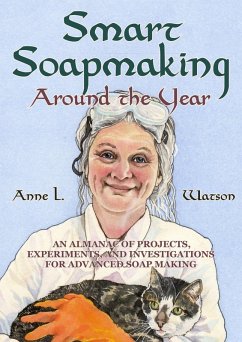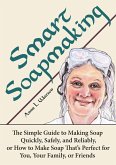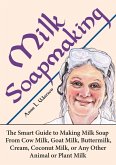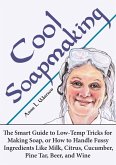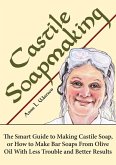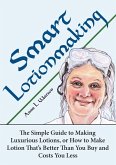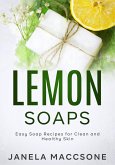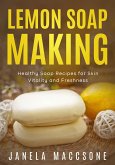In between writing several of today's most popular and innovative beginner books on soapmaking -- including the modern classics "Smart Soapmaking" and "Milk Soapmaking" -- Anne L. Watson engaged in a number of projects, experiments, and investigations into areas of advanced soapmaking. A lot of it never got into those books!
Now Anne shares with you her explorations into such topics as herbal soaps, chocolate soaps, silk soaps, sea soaps, "wood" soaps, citrus soaps, cucumber soaps, oatmeal soaps, egg soaps, beer and wine soaps, castile soap, and even laundry soap. Along the way, she shares hard-earned tips about soap equipment and ingredients, choosing soapmaking suppliers, designing and resizing recipes, troubleshooting, trace accelerants, soda ash, essential oils and fragrances, natural colorants, gift soaps, and soapmaking as a business. And as a special bonus, she provides a fun and instructive look at the history of soap ads, using antique trade cards from her personal collection.
Looking for new challenges as a soapmaker? Anne's soapmaking almanac will keep you busy, engaged, and entertained throughout the year.
/////////////////////////////////////////////////
Anne L. Watson is the author of "Smart Soapmaking," "Milk Soapmaking," three more books on making soap and lotion, other popular books on home crafts and lifestyle, and many novels and children's books. In a previous career, she was a historic preservation architecture consultant. Anne lives in Bellingham, Washington.
/////////////////////////////////////////////////
SAMPLE
Almost any kind of soap will get you clean. But beyond that, what do we look for? There are so many things to consider -- lather, fragrance, color, and effects on the skin, to name just a few.
Then there's the whole process of making that soap. Is it easy or tricky? How long does the soap need to age before it's safe and pleasant to use?
What additives are beneficial? Which affect the chemistry of the process? How can we get around difficulties?
How do you turn soapmaking into a business, if that's what you want?
This almanac started life as a monthly "magazine" posted on my web site, where I shared projects, experiments, and investigations I took up between writing my first three books on soap and lotion making. There was a lot that never got into the books!
Along with practical questions, I gave some attention to the social and cultural side of soap -- to attitudes and prejudices and myths. I'm fascinated by soap advertising and its claims, and by the history of the daily process of cleaning ourselves, our homes, and our clothing. All of that says a lot about where we've been, and maybe something about where we're going.
I'm glad now to offer all this in the more enduring form of an almanac -- something to keep in your collection of soapmaking references.
Before we start, though, here are just a few practical notes:
Most important, this is not a beginning soapmaker's "how-to" book. It contains many recipes, but they're mostly just ingredients lists, because I assume you already know how to make soap. If you do need basic directions, please see one or more of my other books -- especially "Smart Soapmaking" and "Milk Soapmaking" -- or any other reputable resource.
Dieser Download kann aus rechtlichen Gründen nur mit Rechnungsadresse in A, B, CY, CZ, D, DK, EW, E, FIN, F, GR, H, IRL, I, LT, L, LR, M, NL, PL, P, R, S, SLO, SK ausgeliefert werden.

